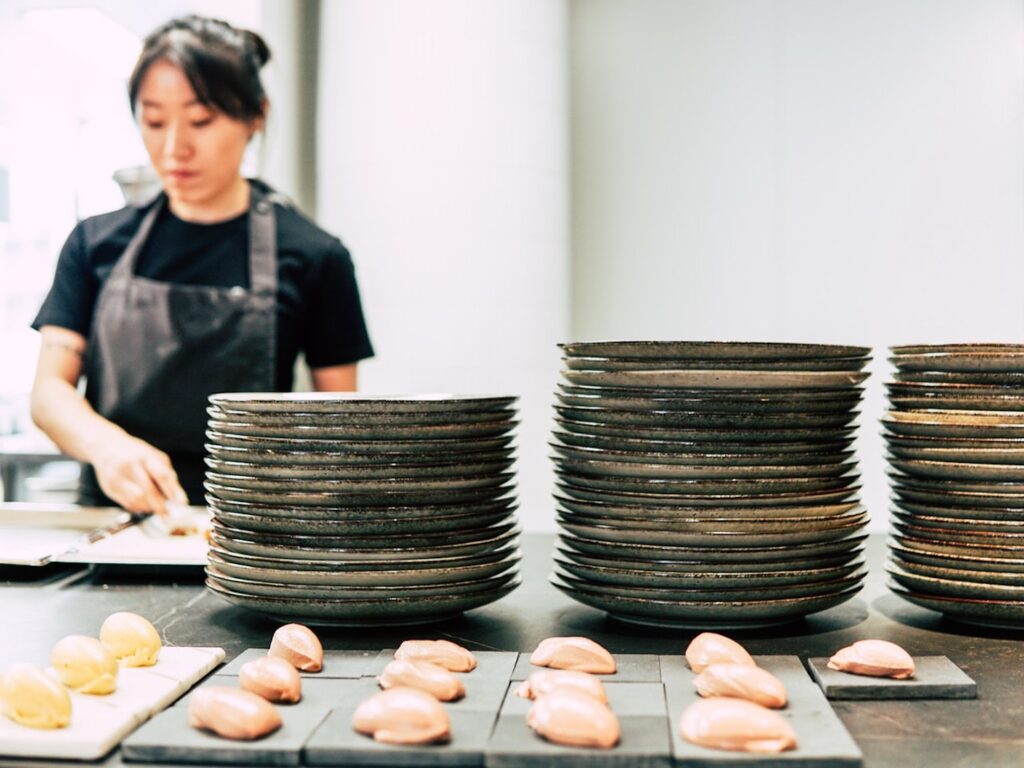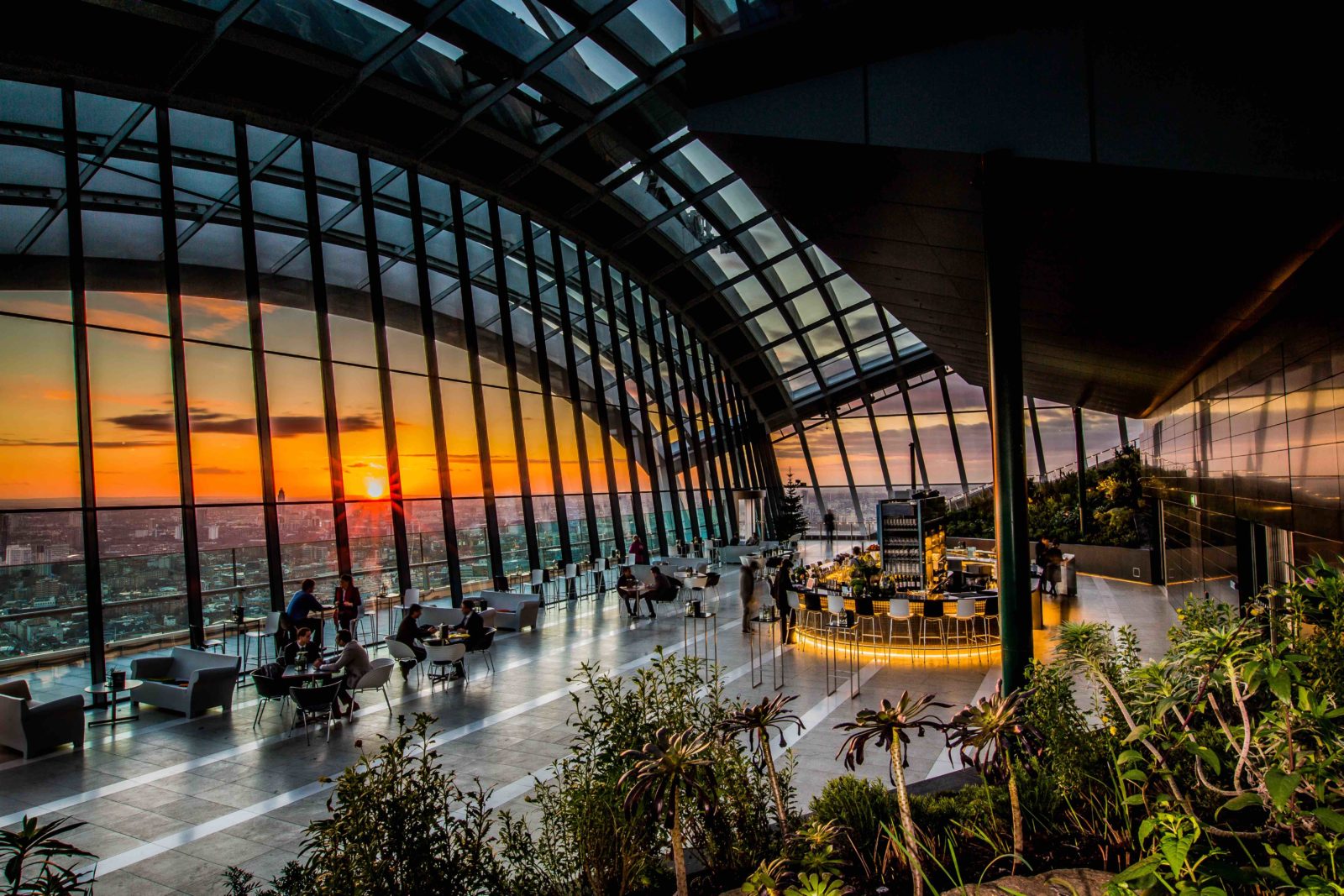
Yep, we understand the enormous implications of ‘in 2020’, but we just couldn’t bear to write ‘in the time of a Global Pandemic’ once again.
This year, there’s no doubt that the UK economy as a whole has suffered, but the restaurant industry has been particularly hard hit. Coronavirus has closed countless restaurants, both temporarily or permanently, and ever shifting Government guidelines – should we stay or should we go, now? – have made things even tougher.
Indeed, huge national chains and some of our favourite independents alike have had to permanently shut their doors this year, and it’s a tragedy. However, if you’ve visited your local highstreet lately, you may have seen the painters in old or newly closed shop fronts, preparing for a new restaurant opening. Surprising as it may sound, across the country and the wider world, new restaurants are still opening in the midst of the pandemic, in an attempt to avoid financial ruin and keep staff on payroll.
Whether you’re a restaurant pivoting to takeaway, looking to expand and diversify, or even if you’re opening a new place, then here are the IDEAL dos and don’ts regarding commercial kitchen rental.
COMMERCIAL KITCHEN RENTAL: DOS AND DON’TS
If you are an independent restaurateur, you’ll usually want to allow yourself anywhere up to six months (and often, longer) to find a new premises, from the initial viewing to having things fully set up.
DOS
Pivot to takeaway, for now
Go out for a late night walk during lockdown, and the only people you seem to see out are Deliveroo and other takeaway drivers awaiting collection. Dozens and dozens of them, in fact, and whilst it’s a little unnerving, it’s suggestive of a shift in our eating habits. This was the case even before restaurants had to shut up shop for the month. Back in February (remember those heady days?), it was reported that the UK’s takeaway sector was growing faster than any other in the hospitality industry.
For now, focusing on takeaway might be where the smart money is, since this revenue stream is more immune to the effects of coronavirus and its subsequent restaurant closures.
Create a competition for your tenancy
While you may love your current location, nothing is stopping you from simultaneously negotiating on several other positions, more so when dealing with a lease renewal. Playing one landlord against another may even help you to create options, bargain on the fine print, and potentially come away with better terms at the end of it.
Inform each landlord that you have been receiving other exciting proposals. It’s a strategic move designed to make your landlord earn your ongoing tenancy, rather than the other way round.
Begin the site selection and planning process early
If your commercial kitchen is already up and running, your lease renewal process should start at least twelve to fifteen months before the current lease runs out.
By beginning early, you will have enough time to conduct negotiations, complete the paperwork, and look for alternative locations. Doing all of this well in advance flips the power dynamic from seller’s to buyer’s market. Sometimes, food business start-up success is found in manipulating these power dynamics in your favour.
Of course, there’s no guarantee that the negotiations will ultimately work in your favour. Early talks, therefore, make it possible for you to also account for Murphy’s Law. As in, what can go wrong will go wrong.
Consult with other tenants
It’s always advisable to talk to other tenants when you are negotiating a lease renewal. Consult with those in the building who have recently gone through the same process. Your goal here is to establish how the renegotiations with the landlord went and whether the building owner was open to the idea of providing further tenant incentives, e.g., new rents.
Discuss renewal enticements
Perhaps without good reason, many commercial kitchen tenants fear or neglect to engage their landlords in negotiations over the contract.
But if your lease is about to expire, you may want to ask yourself (and your landlord) the kind of enticements that your landlord may be willing to give to a new tenant. Think about the inducements that the next person renting that space may get, e.g., tenant allowances and free rent for a few weeks, and then firmly ask for those, too.
DON’TS
Don’t maintain false optimism
As a restaurant owner, if you know your business isn’t doing well at the current location but continue to engage in lease renewal negotiations, it might be time to question whether a move might be wise. Though a new location might bring new footfall or simply breathe a new lease of life into operations, it may not solve more underlying issues. Tread carefully.
Don’t broadcast your success
Broadcasting your kitchen’s success prematurely might lead to your landlord attempting to raise your rent. It’s not uncommon for some landlords and agents to want to take advantage of commercial kitchen owners. They understand that moving the business is an expensive move and that it takes time to set up at a new location; as such, be wary of them playing off that reluctance to move.
But if push comes to shove, which may happen at some point, companies such as Occupyd offer stopgap solutions and can find a new commercial kitchen space to rent quickly.
Don’t settle for a lease length you deem inappropriate
When setting up a commercial kitchen for the first time, it’s typical for the landlord to offer a lease length of around five, eight, and in some cases, up to ten years.
However, when the time to renew the lease comes around, don’t automatically settle for a lease length of the same duration. Take the time to consider your plans.
Some of the questions to ponder include whether you intend to retire or sell the business to someone else later down the line. Don’t allow yourself to unnecessarily get locked into a lengthy lease if you have ambitions for expansion and growth.
DON’T STOP BELIEVING
Finally a word of encouragement; don’t stop believing!
If you’re keen for more guidance, check out our tips on 4 IDEAL market research methods for food businesses. And once again, good luck!





